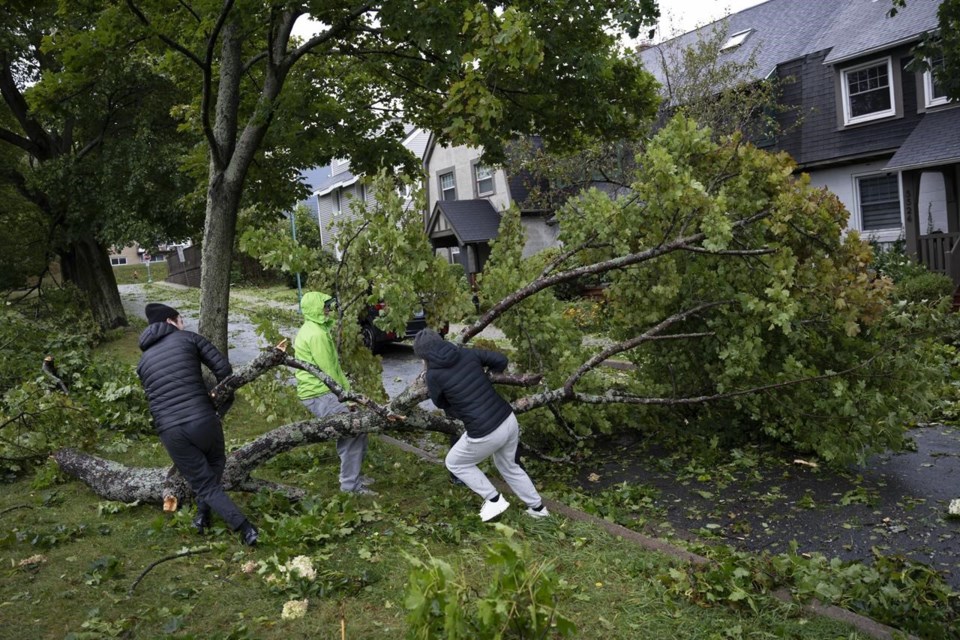HALIFAX — A new report says Nova Scotia will face more frequent and intense storms, rising sea levels, more rainfall and higher temperatures over the next 80 years if further action isn’t taken on climate change.
The provincial Environment Department’s climate risk assessment says the province can expect an increase of 4.5 degrees Celsius in the average annual temperature by 2100 if global greenhouse gas emissions aren’t cut significantly.
The province can also expect a 10 per cent increase in annual precipitation, with more rain and less snow, along with a sea level rise of up to one metre and a 5.1-degree increase in sea surface temperature.
As well, peak wind speeds during storms are expected to increase by 3.7 to seven kilometres per hour.
The report says severe storms like hurricanes Juan and Fiona have hit harder than ever before, and the worsening pattern is projected to continue over the century.
While it does not offer solutions, the risk assessment is meant as a resource to help governments set priorities, plan and act.
"It's important to understand where and how we are vulnerable so we can all take action," Environment and Climate Change Minister Tim Halman said in a news release. Climate change "will affect the province and Nova Scotians in many ways — our economy, the environment and our well-being,” he added.
With continued high emissions, the report says the top concerns in Nova Scotia will be flooding during the 2030s, warmer temperatures and wildfires in the 2050s, and extreme temperatures that harm health and food production in the 2080s.
The report says average winter temperatures are projected to increase to above freezing by 2100, resulting in less snow cover and sea ice.
“By the end of the century, projections indicate that we could see as little as two weeks of days with snow all winter,” the report states.
It says sea level rise and rising temperatures stand out as two important risks affecting the province.
This report by The Canadian Press was first published Dec. 5, 2022.
The Canadian Press
Note to readers: This is a corrected story. A previous version based on information in a government news release said the average annual temperature could increase by 4.8 C by 2100.




